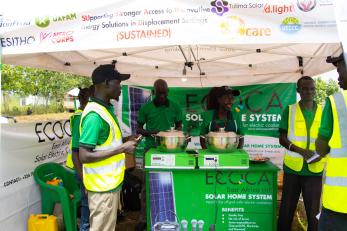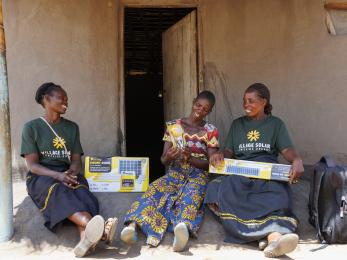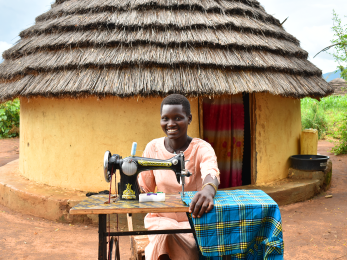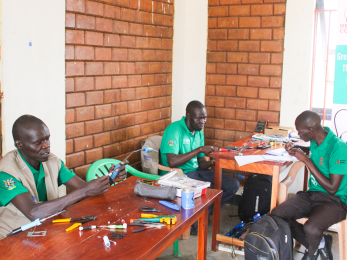Effective Strategies to Promote Clean Energy Adoption
Enhancing women's economic empowerment in BidiBidi

Over 95% of refugee households rely on unsafe, polluting fuels—disproportionately impacting women, who are primarily responsible for household energy needs. This contributes to time, poverty, health risks, and heightened vulnerability to gender-based violence.
While the role of renewable energy in enhancing resilience and wellbeing is increasingly acknowledged, systemic barriers—such as high upfront costs, inadequate infrastructure, weak policy enforcement, and limited private sector engagement— continue to restrict access to clean and affordable energy solutions. Many energy interventions remain short-term, donor-driven, and disconnected from national development frameworks.
Women and girls face unique constraints to financial inclusion, market access, and participation in sustainable livelihoods. Social norms limited decision-making power, and financial exclusion further exacerbate their vulnerability. There is a pressing need to understand how economic and energy access interventions influence household resilience, gender dynamics, and long-term empowerment.
Addressing economic empowerment, household resilience, and clean energy adoption in Bidi-Bidi requires bridging key knowledge gaps. While clean energy is a proven enabler of women’s productivity and well-being, structural and gender-based barriers continue to limit access in both refugee and host communities.
This report presents evidence-based insights and strategic recommendations to inform more genderresponsive, sustainable energy interventions in displacement settings. It highlights promising approaches—including innovative financial models such as pay-as-you-go (PAYGO) systems, targeted subsidies, and community sensitization—demonstrating how integrated, gender-responsive programming can drive more inclusive and sustainable outcomes.


